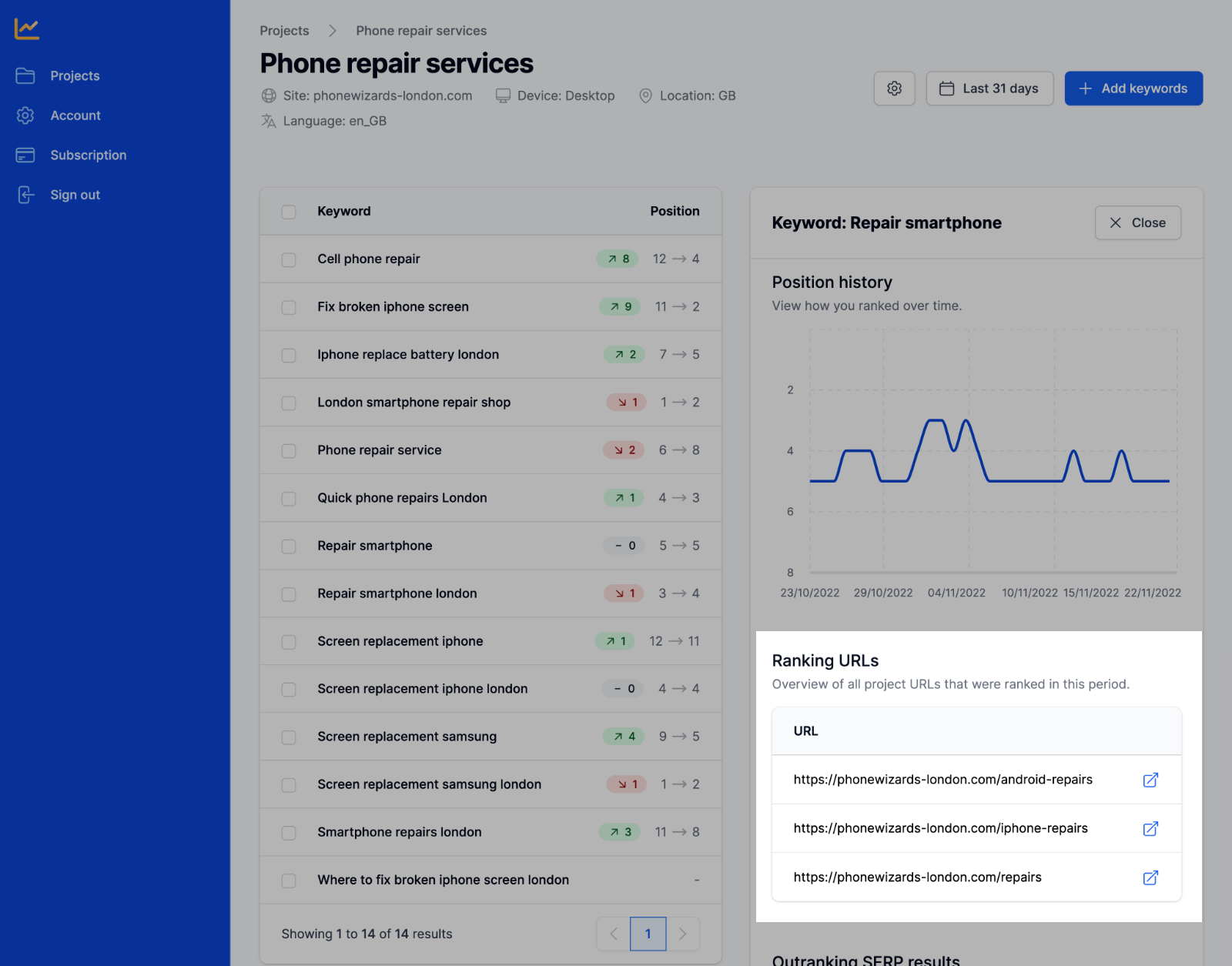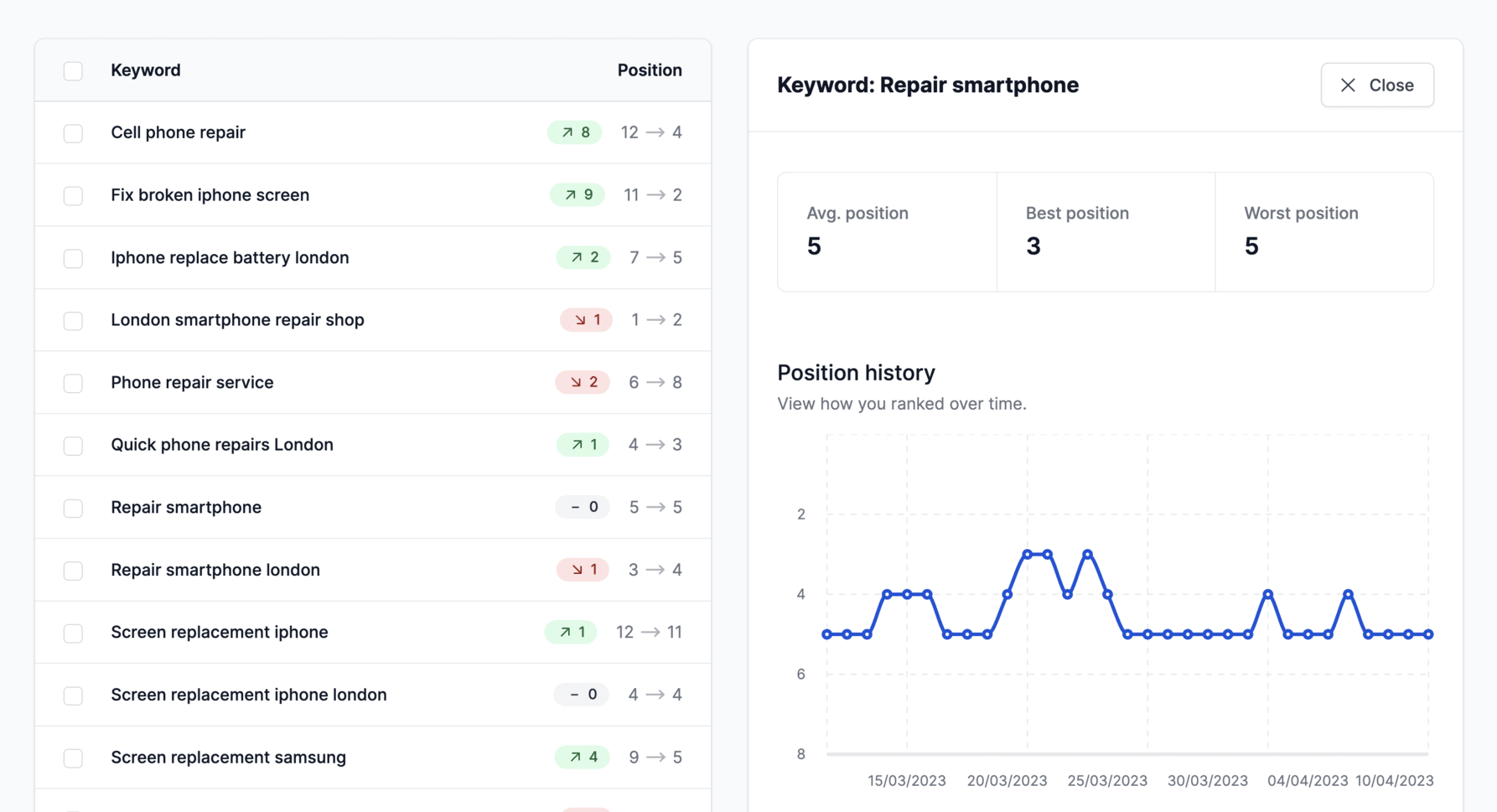This week we have started rolling out a new version of Serpotrack. Besides the new design, we have also added new features. One of those is the ability to list your ranking URLs per keyword.
Why monitor SERP URLs?
The main advantage to knowing what URLs to your site rank in search engines, is that it gives you insights for SEO. For example, if you see that page X ranks for keyword Y instead of keyword X, then you might need to optimize page X some more. Afterwards you'll hopefully notice that page X will rank for keyword X, as intended.
Having a list of URLs of yours that are ranking for a certain keyword, also lets you find unexpected URLs that you didn't knew were ranking. So, as you can imagine, a small feature like this still adds value to your SEO insights.
How to keep track of your site's SERP URLs?
With Serpotrack, you can now get a list of ranking URLs. To view it, navigate to your project. Then pick a keyword where you want to view the ranking URLs of and click on it to show its details. In the details panel, there is a section "Ranking URLs". In the table you'll see all URLs that were ranking for that keyword during the given period (last 31 days by default).

If you adjust the date range, this table gets updated. You do so by clicking the "Last 31 days" button with the calendar icon on top of the page.
Try our SERP keyword rank checker tool
Sign up to Serpotrack and try it for free if you want to monitor your ranking URLs too. If you need some help in setting up your account or projects, follow our quickstart guide.









